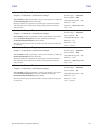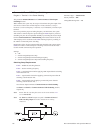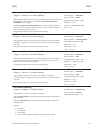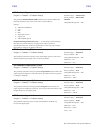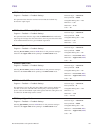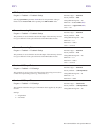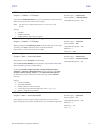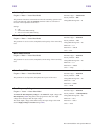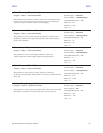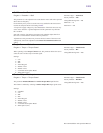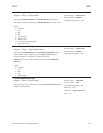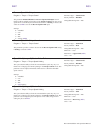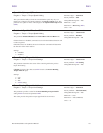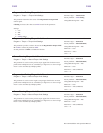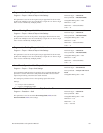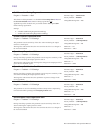
H9 ASD Installation and Operation Manual 153
Motor Constant 1 (Torque Boost)
Program ⇒ Motor ⇒ Vector Motor Model
This parameter sets the primary resistance of the motor. Increasing this value
can prevent a drop in the torque of the motor at low speeds. Increasing this
value excessively can result in nuisance overload tripping.
Direct Access Number — F410
Parameter Type — Numerical
Factory Default — (ASD-dependent)
Changeable During Run — Yes
Minimum — 0.0
Maximum — 30.0
Units — %
Motor Constant 2 (No-load Current)
Program ⇒ Motor ⇒ Vector Motor Model
This parameter is used to set the current level required to excite the motor.
Specifying a value that is too high for this parameter may result in hunting
(erratic motor operation).
Direct Access Number — F411
Parameter Type — Numerical
Factory Default — (ASD-dependent)
Changeable During Run — No
Minimum — 10
Maximum — 90
Units — %
Motor Constant 3 (Leak Inductance)
Program ⇒ Motor ⇒ Vector Motor Model
This parameter is used to set the leakage inductance of the motor.
A larger setting here results in higher output torque at high speeds.
Direct Access Number — F412
Parameter Type — Numerical
Factory Default — (ASD-dependent)
Changeable During Run — Yes
Minimum — 0
Maximum — 200
Units — %
Motor Constant 4 (Rated Slip)
Program ⇒ Motor ⇒ Vector Motor Model
This parameter is used to set the secondary resistance of the motor.
An increase in this parameter setting results in an increase of compensation for
motor slip.
Direct Access Number — F413
Parameter Type — Numerical
Factory Default — (ASD-dependent)
Changeable During Run — Yes
Minimum — 0.01
Minimum — 25.00
Units — %
Exciting Strengthening Coefficient
Program ⇒ Special ⇒ Special Parameters
This parameter is used to increase the magnetic flux of the motor at low-speed.
This feature is useful when increased torque at low speeds is required.
Direct Access Number — F415
Parameter Type — Numerical
Factory Default — 100
Changeable During Run — Yes
Minimum — 100
Maximum — 130
Units — %
F410 F415



